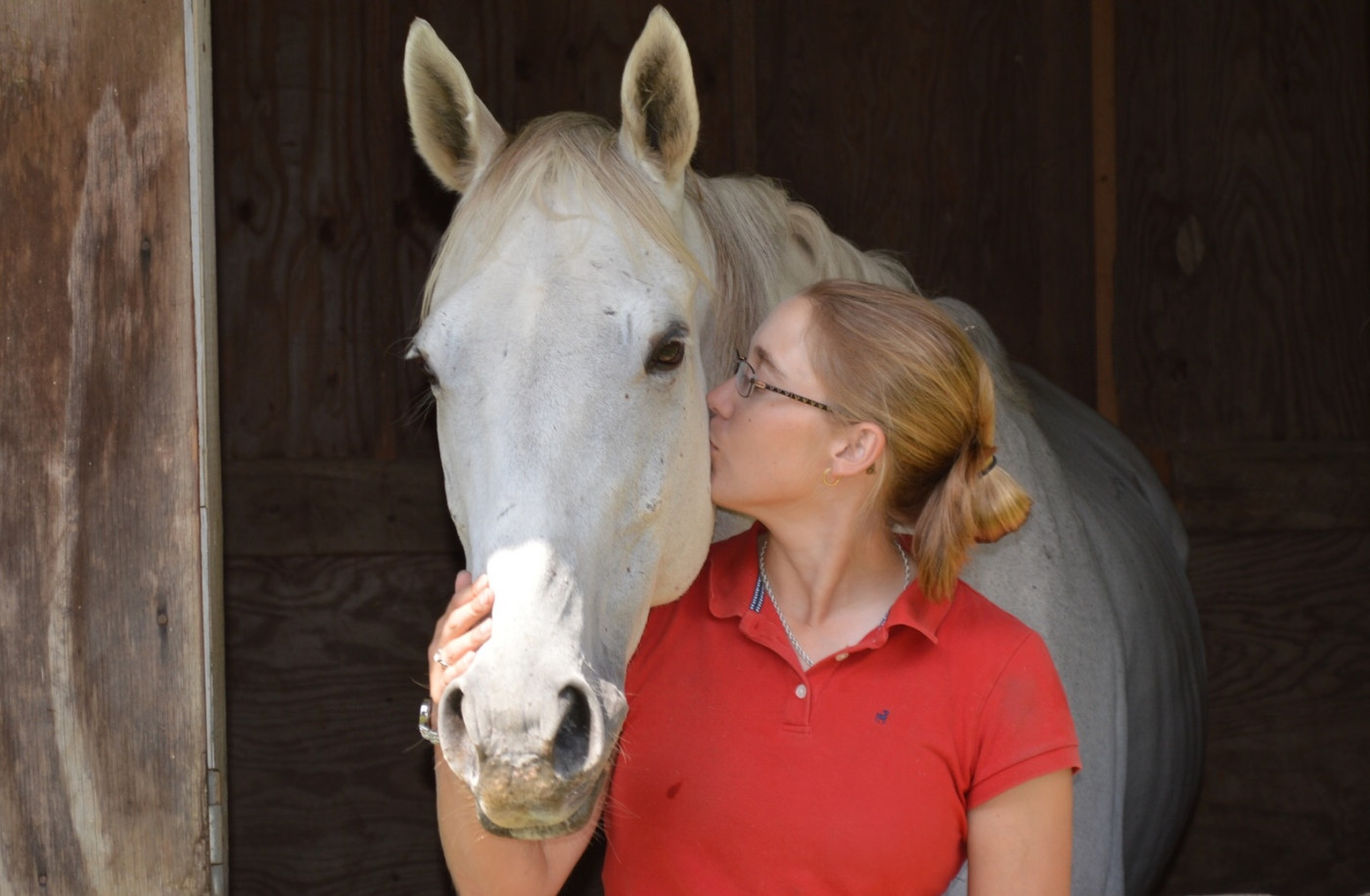Learning Patience with a Racehorse Named Artica
Written by |

(Courtesy of Karen Del Vecchio)
To know me, it’s important that you know a bit about my past and the journey to my current style of Ehlers-Danlos syndrome (EDS) management. So, in my next few columns, I’ll cover my history and how various experiences helped me learn the ways I manage EDS. One critical piece of that journey was a 1,100-pound thoroughbred former racehorse named Artica.
Artica, my college graduation present to myself, had been emotionally and physically abused before we met. (Remember that financially irresponsible choice at graduation that I mentioned in my last column? That was him.) He desperately wanted affection but was convinced that nothing good came from human contact. While he had been well-treated for the past three or four years while living on the farm where I rode in college, his life on the racetrack prior had been one of significant hardship and, most likely, pain. While he had a strong distrust of people, he also had an incredibly athletic build and loved to work — once you could get him groomed and under a saddle. He and I shared the frustration of possessing incredible athleticism in a body that simply wouldn’t hold up to the repetitive beating of sports.
Patience has never been a strong suit of mine and EDS certainly didn’t make that better. With the syndrome, injuries are common, take longer to heal, and sometimes keep me from doing what I want to do. At that point in my life, I was always dealing with significant chronic pain. Arti, as I affectionately called him, forced me to make patience part of my daily routine; to be anything but was simply counterproductive. It took me years, literally, to fully earn his trust, and the patience he taught me has proved vital to all areas of my life.
EDS brought me down by complicating tasks and making recovery seem like it takes forever — sometimes I just get flat-out frustrated and mad. With Arti, though, those emotions weren’t even on the table as options. The slightest sense of negative energy used to send him into a tailspin, convincing him that if someone was unhappy, even if it wasn’t about him, abuse must be imminent. His response broke my heart. I was determined to find a way to harness what at times could be overwhelming frustration about my own limitations and to instead find ways to focus on the positives. Let me tell you, at this point in my life (about 10 years ago), focusing on the positives was not a skill I was particularly adept at harnessing. My incredible frustration over my limitations, overwhelming pain, and exhaustion via chronic fatigue had resulted in a very negative outlook. Arti made me determined to do better.
As someone diagnosed at 22, I spent many years not even knowing how much pain I was in. If you’ve always been in pain, how do you recognize it for what it is? It wasn’t until I started getting regular massages and physical therapy targeted to my myriad injuries and issues that I started realizing the depth of the chronic pain I was trying to manage, and that this was a significant contributor to me being so negative and emotional.
Those without a chronic condition like EDS can find that concept hard to wrap their heads around: What do you mean you didn’t know you were in pain? I mean, didn’t you hurt? Well, yes, of course, but when you don’t know anything different, it doesn’t register that way. It’s simply how you are. You also don’t realize how constant pain can affect you mentally until you start to feel better. Ironically, I was now on this journey of improvement with a horse that, for different reasons, was also in chronic pain and faced a slow road to recovery. We would be each other’s support along the way.
***
Note: Ehlers-Danlos News is strictly a news and information website about the disease. It does not provide medical advice, diagnosis, or treatment. This content is not intended to be a substitute for professional medical advice, diagnosis, or treatment. Always seek the advice of your physician or other qualified health provider with any questions you may have regarding a medical condition. Never disregard professional medical advice or delay in seeking it because of something you have read on this website. The opinions expressed in this column are not those of Ehlers-Danlos News or its parent company, Bionews Services, and are intended to spark discussion about issues pertaining to Ehlers-Danlos.



Leave a comment
Fill in the required fields to post. Your email address will not be published.